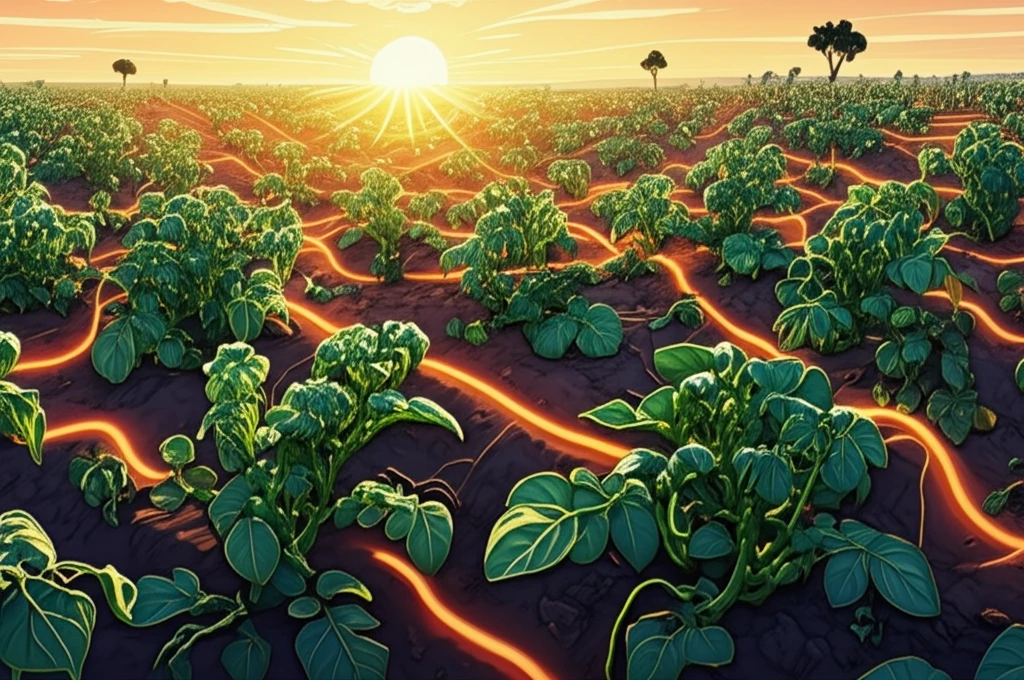
Unlocking Potato Potential: Simple Traits for Heat-Resistant Harvests
"Discover how identifying key traits in potato plants can help you grow thriving, heat-resistant crops and secure your harvest"
Potatoes are a nutritional powerhouse, essential for combating hunger and malnutrition worldwide. With a high harvesting index, they promise substantial yields. However, climate change and expanding cultivation into warmer regions pose significant challenges, making heat-tolerant potato varieties a top breeding priority.
While global potato production has increased, yield rates in developing countries remain stagnant due to environmental stresses like heat, drought, and salinity. Potatoes thrive in cool conditions, ideally between 17 and 21°C. Temperatures above this range can disrupt crucial physiological processes, impacting yield and quality.
Global warming scenarios predict reduced potato yields in key production areas. Developing heat-tolerant varieties is vital for maintaining production levels. In Mediterranean climates, breeding for heat resistance is essential for consistent yields amidst rising temperatures.
Key Traits for Heat Tolerance in Potatoes

Identifying traits related to heat tolerance is crucial for selecting resilient potato genotypes. A recent study evaluated the responses of 17 potato genotypes to high-temperature stress, aiming to pinpoint candidate traits associated with heat tolerance. This research focused on readily measurable characteristics that could help breeders efficiently screen for heat resistance.
- Haulm Dry Weight (HDW): Measures the dry weight of the potato plant's above-ground parts, indicating overall plant vigor.
- Leaf Area Index (LAI): Represents the total leaf area per unit of ground area, reflecting the plant's ability to capture sunlight.
- Photosynthetic Rate (Pn): Indicates the rate at which the plant converts light energy into chemical energy.
- Canopy Temperature (CT): Measures the temperature of the plant canopy, which can indicate its ability to regulate heat.
Actionable Steps for Potato Growers
The research offers practical insights for potato growers and breeders. By focusing on easily measurable traits like haulm dry weight, leaf area index, and photosynthetic rate under normal conditions, it's possible to identify and cultivate potato varieties that can withstand heat stress. Incorporating these findings into breeding programs will accelerate the development of resilient potato crops, ensuring food security in a warming world. This approach not only addresses the challenges posed by climate change but also enhances the sustainability of potato production in diverse environments.
